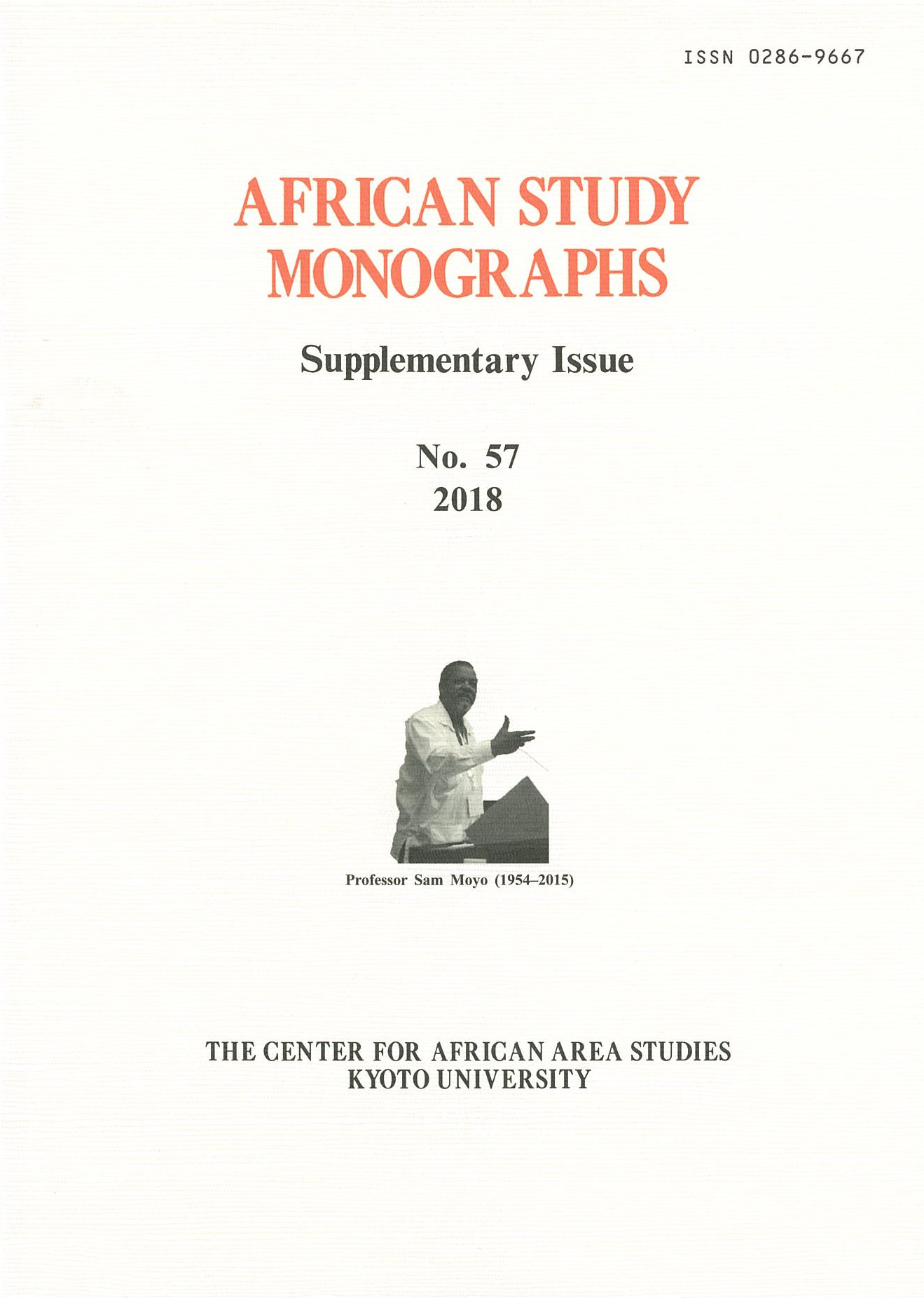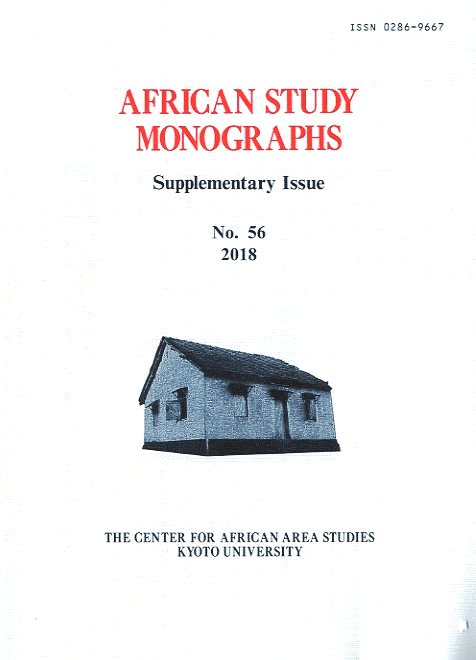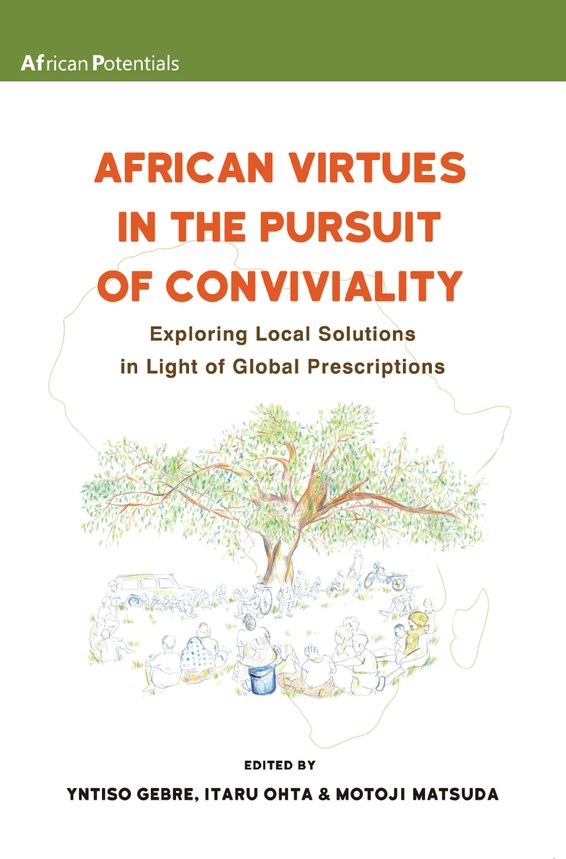Date and Time: June 22, 2019 (Saturday); 14:30 – 17:00
Venue: Large Meeting Room, 3rd Floor, Inamori Foundation Memorial Hall, Kyoto University
At the beginning, the secretariat announced the following four points.
1) Updates on outcome publication for the Accra Forum
2) Outline of Lusaka Forum
3) Timeline for publication of the project outcome
4) Upcoming activities
Following the announcement, a workshop was held. This workshop, called “Reconsidering the economy of African states: From the mixture of Informality and Universality,” was organized jointly by the Nation and Citizenship Research Team and the Development and Livelihood Research Team. After an explanation of the intentions of the workshop by Motoki TAKAHASHI (Kyoto University), who served as the MC, two members from each team delivered research presentations. Akira SATO (Institute of Developing Economies) made comments on the first two presentations while Shuichi OYAMA (Kyoto University) commented on the latter two presentations. Motoji MATSUDA, the project leader, gave overall comments after the final discussion. The names of the presenters, the titles of their works, and the outlines of their presentations are recorded below:
Speaker 1: Mitsugi ENDO (University of Tokyo)
Title: Perspectives and Research Agendas on “Informal Institutions” in Comparative Politics and African Political Studies
The field of comparative political studies has considered formal institutions foremost and has considered informal institutions only in relation to their formal counterparts. This field has focused either on how informal institutions enhance or distort formal institutions or on upon the mechanisms that underlie the emergence of informal institutions. On the other hand, the field of African political studies has considered informal institutions foremost and formal institutions by relation, giving rise to the view of statehood as weak and to the core concept extraction-based neopatrimonialism. The speaker pointed out the political phenomena which the concept of neopatrimonialism overlooks, such as the consideration of the impact of formal institutions and interrelationship between formal and informal institutions. Moreover, the speaker discussed the challenges associated with these phenomena.
Speaker 2: Wakiko OHIRA (University of Tokyo)
Title: Are Traditional Authorities “Formal” or “Informal”? Case Study of the Bunyoro Kingdom in Western Uganda
The speaker first asked a question: whether traditional authority is formal or informal. Then she elucidated that traditional authorities have a strong degree of influence over governance in rural areas in the countries with constitutions which refer to the status of traditional authority. In Uganda, although traditional authority is stipulated in the constitution, its influence is limited only to cultural aspects. The Bunyoro Kingdom of Western Uganda has been used by the government for such tasks as the implementation of governmental campaigns and policies or the advancement of land registration. However, the speaker noted that the authorities acted proactively for petroleum development, such as by attempting organizational reform and influence-peddling, for the kingdom’s benefit.
Speaker 3: Motoki TAKAHASHI (Kyoto University)
Title: Absence of the state and informality in Nairobi, Kenya: “Gifting” of sofa-making technology as formation of public good
The speaker drew on the example of sofa making and selling in the Huruma area of Nairobi, Kenya, to discuss the accumulation of public intellectual property. The number of stores making and selling sofas in the area has increased from five or six in 1982 to around 100 in recent years. With this increase, individual stores did not grow; rather development without growth in scale—i.e., horizontal expansion, where the number of people in the same business increased—was observed. The techniques of sofa making were taught among acquaintances free of charge, and such knowledge was shared as public goods. This knowledge, therefore, became informal goods in which the state did not have a role to play. In such a situation, horizontal expansion makes more sense than scaling-up. This is also true from the perspective of the three issues a company faces, as enumerated by Adam Smith: 1) problem of stocks, 2) problem of discrepancy and conflict, and 3) adaptability to unexpected situations. The speaker discussed the possibility that the free gifting of techniques, as witnessed in this case, may be a more universal act than technology transfer as carried out by the state or market.
Speaker 4: Mayu HAYAKAWA (National Museum of Ethnology)
Title: Zimbabwe’s informal economy under hyperinflation in 2008
The speaker discussed the diversified nature of universality with an example of informal economy in Zimbabwe during the hyperinflation era. In Zimbabwe, where the annual inflation rate reached approximately 231 million percent in 2008, the informal economy called, Kiyakiya, economy came to play a key role to cope with the shortage of goods and cash. The presentation introduced three features of the Kiyakiya economy. First, economic activities came to be done by foreign currencies. Second, some economic activities became phenomenally popular. These activities included a process called “burning money,” where one profits from the differences between the cash rate and the deposit/saving rate when exchanging foreign currencies into Zimbabwe Dollars and another called Bacosi, where individuals buy goods with money in deposits and sell them for cash. Third, street vendors were earning cash income everyday by buying goods with small amounts of money and selling them quickly. Each of these trade patterns focuses on a different function and use of currency. The presenter discussed that the Bacosi business strategy with its investment function and the street vendors’ economic activities, which utilize exchange function, may be regarded as a different communality than the closed communality of the formal economy.
Shinichiro Ichino / Misa Hirano-Nomoto



